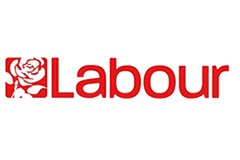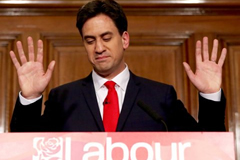This week Bury MP and former government minister Ivan Lewis declared his interest in the post of Greater Manchester Metro Mayor, a powerful position that has been established as part of the ‘Devo Manc’ deal. The election for the post will take place in 2017.
If George Osborne’s Northern Powerhouse plans go as he hopes, then Metro Mayors will be part of the new governance structure landscape in all core cities, and what Lewis’ declaration reveals is that these are jobs that will be of interest not only to local government leaders, but to national politicians too – particularly Labour MPs who see a long and frustrating period of opposition ahead under the leadership of Jeremy Corbyn.
So who else may be considering throwing their hat in the ring in Manchester? The sitting interim mayor is Police Commissioner Tony Lloyd, a former MP himself. There is little doubt that he will be in the running, whilst many from the business community will hope that the principle architect of the Manchester deal, Sir Richard Leese, will offer his services. Former Parliamentary candidate James Frith is another potential Labour nominee, though it is probably too soon for him; and what about that old acquaintance of Downtown, Terry Christian – never short of an opinion, he would certainly make an interesting Independent candidate. And if we are considering ‘A’ list celebrities, then surely Gary Neville would be a hot favourite if he decided to swap the financial rewarding world of football punditry, England coaching and property development for the blood, sweat and tears of running a city region. An unlikely scenario this one.
In Liverpool, the six leaders are said to be tantalisingly close to a deal with the chancellor, but the idea of an elected mayor has been the sticking point. More accurately, the idea of Liverpool mayor Joe Anderson being elevated to the more strategic role has been the problem for other Merseyside leaders. So, if not Joe, who are the alternatives? Refreshingly, there is a strong line up of female suitors for the role who would all make very credible mayoral nominees. The Police Commissioner for Liverpool city region, another former MP Jane Kennedy; and three existing Mersey MPs, the experienced Louise Ellman; shadow minister Luciana Berger, and Labour moderniser Alison McGovern would surely consider running. There have also been a whole host of individual’s names, from successful businessmen such as Sir Terry Leahy, through to celebrity hairdresser Herbert mentioned as a future Liverpool mayor – but the more likely outcome is that a Labour politician will have the privilege of heading up the Liverpool city region in eighteen months’ time.
Big Labour beasts will also be prominent in the Birmingham contest. MPs Gisela Stuart and Liam Byrne have little opportunity of career progression in a left wing dominated parliamentary group, and the attraction of having genuine power over a region that is bigger than some countries would whet the appetite of any serious politician. Local Enterprise Partnership chairman Andy Street has been mentioned to me more than once as a possible runner, and what about the ubiquitous Ed James, who would certainly be more likely to attract the younger voters support.
Leeds and Yorkshire is home to more victims than most as far as Labour’s recent collective nervous breakdown is concerned. Ed Balls lost his parliamentary seat even before the Corbyn bandwagon was an issue, whilst his very able partner Yvette Cooper lost out on the top party job. Could they see the Leeds metro mayor position as a way back into meaningful public office? Young talent, Leeds MP and former shadow treasury minister Rachael Reeves could be another who is considering her options, whilst on the Tory side, would such a high profile, high powered job tempt Yorkshire’s biggest political brain William Hague back into the fray?
Lancashire is still a bit off the pace as far as the devolution agenda is concerned, but as the leaders lunch with Sir Howard Bernstein hosted by Downtown Lancashire last week demonstrated, there was certainly support for the county to get its act together, form a Combined Authority and begin to punch its weight as far as business leaders in the room were concerned. Among those present LEP chairman Edwin Booth, Marketing Lancashire chief executive Ruth Connor, Enterprise Ventures boss Jonathan Diggines, Lancaster entrepreneur Trevor Hemmings and Lancashire County Council Deputy Leader David Burrow.
One thing is for sure, the creation of powerful city region leaders is about to reinvigorate interest in local government – at least among politicians who see a much more rewarding and influential future running their local regions than in sitting on the backbenchers in Westminster watching Jeremy ask Dave his six ‘people’s questions’ every week.







